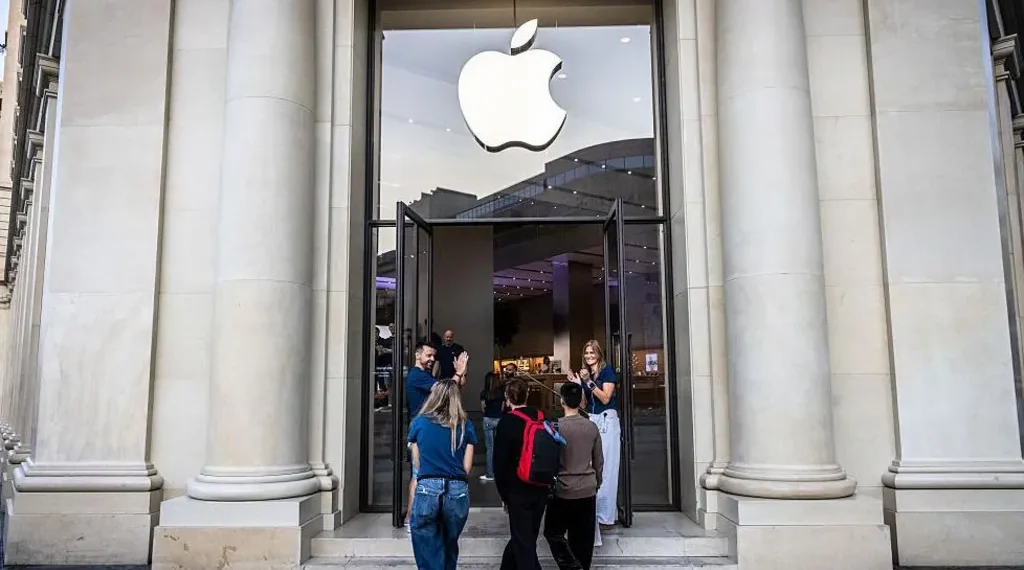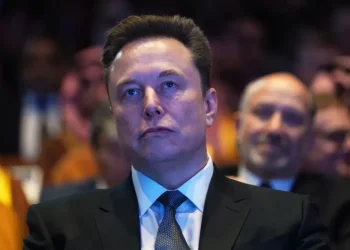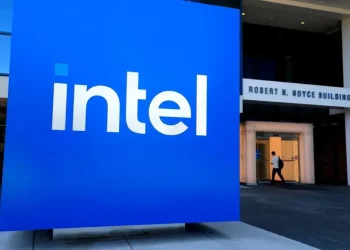Apple escalates dispute with EU regulators, warning Digital Markets Act threatens its secure ecosystem and delays product features in Europe.
Published: September-22-2025, 22:00 EDT
Apple has intensified its public criticism of European regulators, arguing that new rules under the Digital Markets Act (DMA) undermine its ability to deliver a secure and seamless user experience. The company’s latest comments come amid ongoing disputes with the European Commission, a €500 million fine, and new product launches withheld from the European market.
Apple Pushes Back Against EU Regulations
Apple executives have stepped up their rhetoric against European Union authorities, accusing regulators in Brussels of unfairly targeting the company’s “walled garden” model.
Greg Joswiak, Apple’s senior vice president of worldwide marketing, described the EU’s measures as a “serious threat” to Apple’s philosophy of offering tightly integrated hardware and software. “They want to take the magic away—of having a tightly integrated experience that Apple provides—and make us like the other guys,” Joswiak said during a press briefing at Apple’s Cupertino headquarters.
Apple maintains that its closed ecosystem ensures safety, privacy, and reliability, while critics argue it restricts competition and limits consumer choice.
The Digital Markets Act and Apple’s Obligations
The Digital Markets Act, which entered into force in 2022 and began applying in 2024, is designed to curb the dominance of major technology companies labeled as “gatekeepers.” Apple, alongside Google, Meta, Amazon, and Microsoft, falls under this classification.
For Apple, compliance means allowing greater interoperability between its devices and those of competitors. Specific requirements include:
-
Enabling third-party headphones and audio accessories to work seamlessly with iPhones.
-
Allowing notifications from non-Apple smartwatches to display on iPhones, not only on the Apple Watch.
-
Permitting third-party platforms to send and receive files through AirDrop, a feature historically reserved for Apple devices.
According to the European Commission, these obligations are necessary to promote competition and prevent consumer lock-in.
Consumer Advocates Welcome the Changes
Sébastien Pant of BEUC, a European consumer advocacy umbrella group, welcomed the EU’s intervention. “It’s important to tackle the kind of walled garden problem that we’ve had for years,” he said, adding that the DMA will give consumers “more choice in the digital market.”
Pant emphasized that interoperability strengthens consumer rights, giving users the freedom to choose devices and services without being restricted by a single ecosystem.
New AirPods Launch and Withheld Features
Apple’s latest product launch has further fueled the debate. The company recently introduced the AirPods Pro 3, featuring a “Live Translation” function that allows users to hear translations directly in their preferred language.
The product rolled out last week in the United States but will not yet be available in Europe. Apple explained that the feature depends on the integration of microphones across AirPods and the iPhone. Opening up the system to third-party devices, as mandated by the DMA, would require “additional engineering work” to maintain privacy, security, and performance standards.
This selective rollout is not the first time Apple has withheld innovations from the European market. Earlier this year, the company delayed the release of its Apple Intelligence artificial intelligence tools in the EU, citing regulatory concerns.
Escalating War of Words
Historically, Apple has kept its disagreements with regulators largely behind closed doors. However, the company is now airing grievances publicly, warning that European laws risk harming both innovation and consumer experiences.
“European regulators are creating a worse experience for their citizens—our users,” Joswiak said. “They’re undermining innovation, infringing on intellectual property, and damaging privacy and security.”
Apple’s complaints intensified after the European Commission published a decision last week rejecting the company’s appeal to scrap most of its interoperability obligations.
Regulatory Push Beyond Brussels
The European Union is not the only jurisdiction scrutinizing Apple’s business practices. The United Kingdom’s Competition and Markets Authority (CMA) has been pursuing similar measures aimed at opening up digital markets dominated by Apple and Google.
Last month, Apple issued a statement cautioning the CMA against adopting EU-style rules, arguing that such moves could weaken privacy protections and undermine user trust.
A History of Penalties and Disputes
Apple’s conflict with European regulators has been building for years. In April, the company was fined €500 million ($586 million) for what the European Commission described as anti-competitive practices in its App Store. Regulators accused Apple of disadvantaging music streaming rivals by imposing restrictive conditions while favoring its own Apple Music service.
While Apple has paid the fine, it continues to challenge many of the Commission’s findings, framing the disputes as part of a broader struggle over innovation and intellectual property rights.
Broader Industry Implications
Apple is not the only company navigating the effects of the Digital Markets Act. Meta delayed the launch of its Threads social media platform in Europe to ensure compliance with data protection and interoperability rules. Other tech firms, including Google, have faced similar challenges in adapting their platforms to the EU’s regulatory framework.
These delays highlight how the DMA is reshaping the global rollout strategies of major technology firms, often prioritizing compliance over speed of innovation.
Looking Ahead
The clash between Apple and European regulators shows no signs of easing. While the EU insists its rules benefit consumers by encouraging competition and choice, Apple argues that such measures compromise the very qualities—privacy, security, and seamless integration—that define its brand.
As new devices and software updates continue to launch, European users may find themselves waiting longer for features available elsewhere, while the regulatory and legal battles play out.
The outcome will likely set precedents for how global tech companies balance compliance with innovation, with the stakes extending far beyond Apple’s ecosystem.
This article was rewritten by JournosNews.com based on verified reporting from trusted sources. The content has been independently reviewed, fact-checked, and edited for accuracy, neutrality, tone, and global readability in accordance with Google News and AdSense standards.
All opinions, quotes, or statements from contributors, experts, or sourced organizations do not necessarily reflect the views of JournosNews.com. JournosNews.com maintains full editorial independence from any external funders, sponsors, or organizations.
Stay informed with JournosNews.com — your trusted source for verified global reporting and in-depth analysis. Follow us on Google News, BlueSky, and X for real-time updates.














